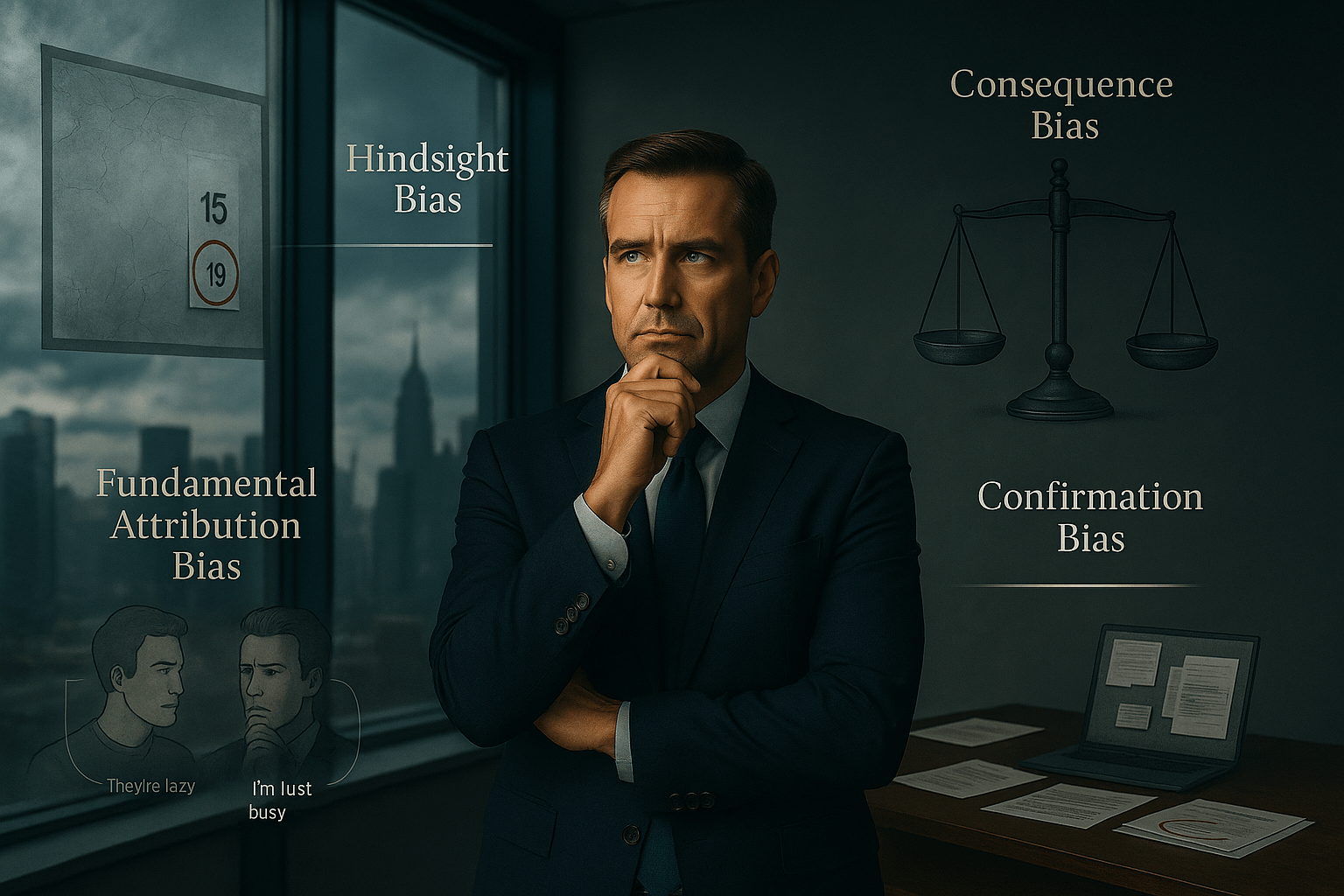Welcome to our Blog where we delve into some of the most interesting aspects of Just Culture.

Fraying Values - the world of early 2026
In these opening days of 2026, I find myself deeply concerned that we're allowing our values of justice, fairness, and mercy to slip away in our public affairs. History shows that when these values erode at the international and national level, they rarely stop there. They seep into institutions, organisations, and workplaces. This is about how power behaves when unchecked, including in organisations.

4 Cognitive Biases all leaders should know
“They should’ve seen it coming.”
Have you ever said that after something went wrong?
It’s easy to look back on a poor outcome and say that. But the future always looks obvious in the rear-view mirror, not so much when you’re facing it head-on.
We like to think our decisions are entirely rational.
But they’re not.
They’re shaped by emotion, physical state, and subtle distortions in how we think.
In this blog, I explore four common biases that affect how leaders judge, assess, and make decisions:
🔹 Hindsight Bias
🔹 Consequence Bias
🔹 Fundamental Attribution Bias
🔹 Confirmation Bias
We can’t eliminate these tendencies. But by being aware of them, we can lead more fairly, ask better questions, and create the conditions for learning.

Learning from Incidents - Objections from Lawyers and Insurers
Can we learn from incidents if our lawyers or insurers say no? After a near miss, safety failure or serious incident we should seek to understand what happened, why it happened, and how can we prevent it from happening again. It sounds straightforward, but many organisations hesitate to investigate. Why? Because legal and insurance advisors often warn that uncovering failures might increase liability. While these concerns are valid, choosing 𝘯𝘰𝘵 to investigate might protect the organisation 𝘵𝘰𝘥𝘢𝘺 - but at the cost of 𝘵𝘰𝘮𝘰𝘳𝘳𝘰𝘸’𝘴 safety and resilience. In this blog post, we explore how organisations can navigate this tension between legal caution and a culture of learning.

Objections to Just Culture from Regulators & Lawyers
One of the challenges when implementing a Just Culture is addressing objections from regulators and lawyers, especially in highly regulated industries. These objections can often arise from misconceptions of what Just Culture is or perceived incompatibilities with other needs. It can also come from the challenges Just Culture can present to the presuppositions held by some lawyers. This article talks about some of these objections and how they can be addressed.

Not having a Just Culture could be putting your business at legal risk
A Just Culture has always been a great thing to have, but is fast becoming a must have. New psychosocial hazard laws require employers to safeguard their employees’ mental health, just as they would their physical health.
This article explains these hazards and outlines how a Just Culture can eliminate or mitigate the risks arising from them.
